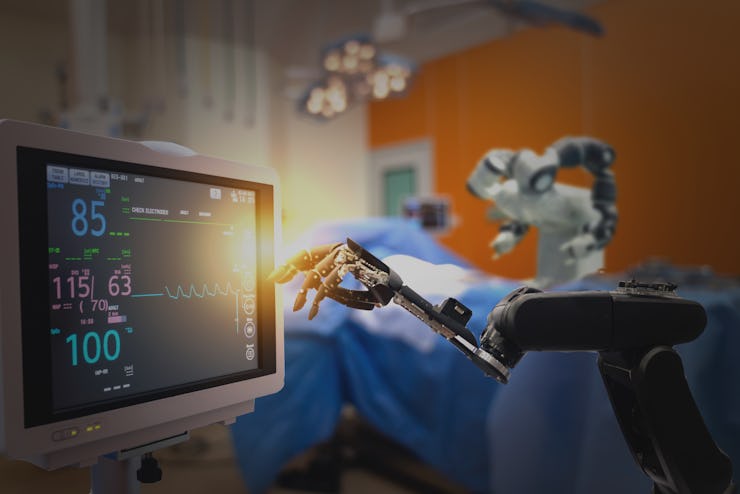How robots and A.I. could help save our healthcare workers and the elderly
Though advancements still need to be made, robots and A.I. could help us fight the coronavirus outbreak and save lives.

To deal with the spread of the coronavirus, we need our doctors, nurses and other healthcare workers to stay healthy so they can help those who have been infected. But healthcare workers who are trying to treat infected people are starting to get infected themselves. Unfortunately, many of these healthcare workers haven't even been able to get the protective gear they need to prevent this from happening.
Even if we do give healthcare workers enough protective gear to help them avoid getting infected, there's still a very real possibility of them getting infected while they're at work. In a new editorial that was published in the journal Science Robotics on Wednesday, leading academic researchers like Howie Choset of Carnegie Mellon University Robotics Institute argue that robots could help us protect healthcare workers during a pandemic.
Choset tells Inverse that robots could be helping protect healthcare workers in numerous ways. With the technology we currently have, he says robots could help deliver meals from a vehicle to sick people who can't leave their homes, help feed those who can't feed themselves and possibly help disinfect hospitals to prevent the virus from spreading.
Unforunately, Choset says, there are a lot of things robots can't yet do that would be helpful right now because researchers haven't been getting adequate funding.
"Robots have mobility challenges they have to overcome, because sick people are not conveniently located in my lab," Choset says. "Once we're at the patient, we have to do some manipulation. For example, if you want to put a swab in someone's mouth or up their nose, that's a very difficult task to do. We do it easily because we have nice brains and muscles and sensors in our bodies, but getting a robot to do that precise task is very hard."
Choset says everyone wants technology that can help during an emergency when an emergency is happening, but people don't tend to think about it when things are calm. If robotics researchers were getting adequate funding, we might already have robots that can do many of the things that healthcare workers are currently doing in response to the coronavirus, which would help keep those workers safe.
"We haven't had the resources with which we can dedicate time to go see that things are indeed going to work in the field," Choset says.
Beyond robots, Choset says artificial intelligence could be helpful during a pandemic. He says we could feed an A.I. system data to predict where the virus will spread to next, to help healthcare workers organize their response and to better diagnose patients.
"We're now seeing examples where we flood data to whatever expert system, and they're starting to predict things a doctor by himself or in a small group otherwise could have missed because now there's a collective of data," Choset says.
As we've reported before, research shows A.I. can help doctors more accurately diagnose types of cancer and even help us predict where a virus will spread to next. As we further develop these types of A.I. systems, there's no telling how they could help us address something like a pandemic.
If we want to properly address this public health emergency and be prepared for the next one, we will need to start properly funding the research that will get us the technology that can help us do it. Without this technology, healthcare workers across the country will continue to be needlessly put at risk.
See also: Elon musk says tesla might get into the fight against the coronavirus
"A lot of people are dying, and it's just going to break my heart to see a healthcare worker die because she or he were trying to help someone else," Choset says. "The use of a robot can really keep people out of harm's way, but the robot has a lot of challenges we need to overcome."
The Inverse analysis
Watching the response to the coronavirus outbreak, it really feels like we're not utilizing nearly enough of the modern technology we have available to us to fight it. Robots, A.I. and many other types of technology could help us get ahead of this thing and save lives, but we have yet to adopt these technologies in any significant way. As Choset says, we also need to be further funding research into technologies that could help us during an emergency so we can have every possible tool available when the time comes.